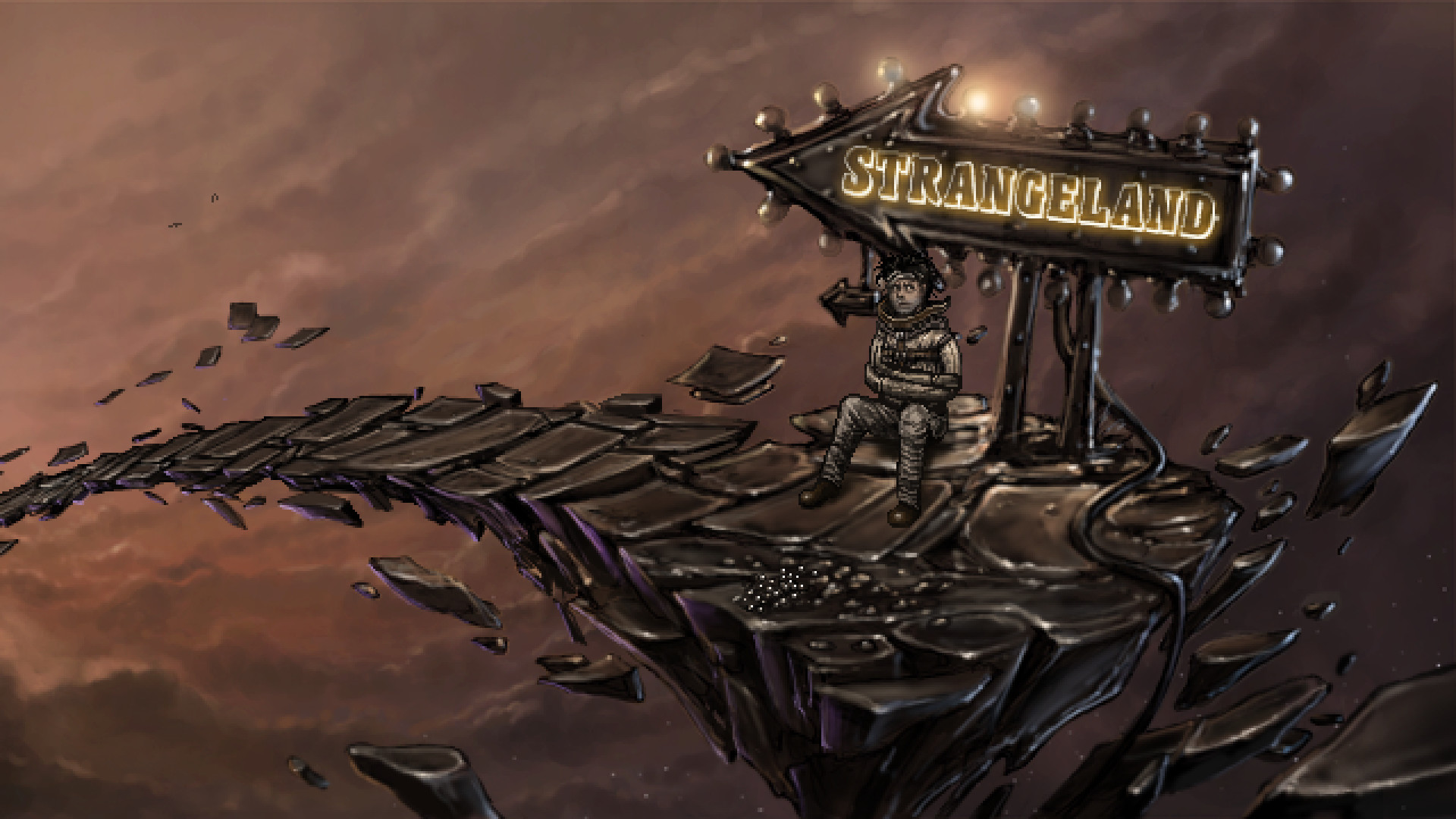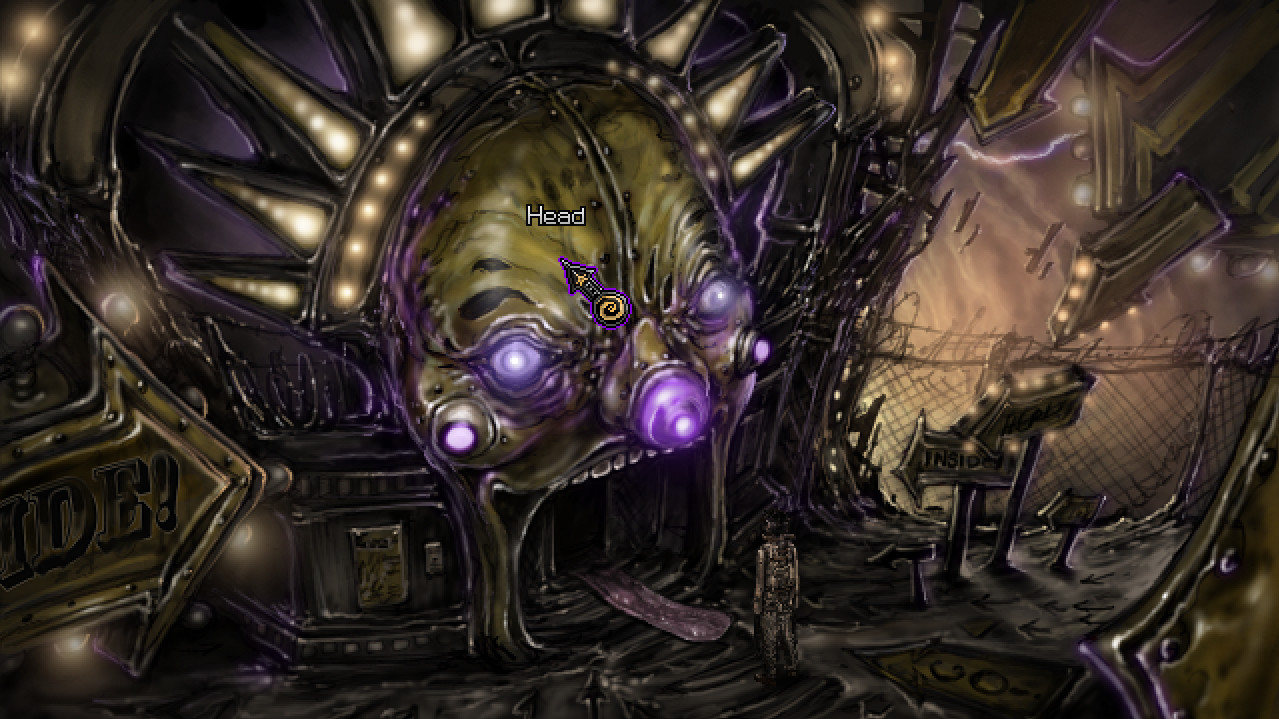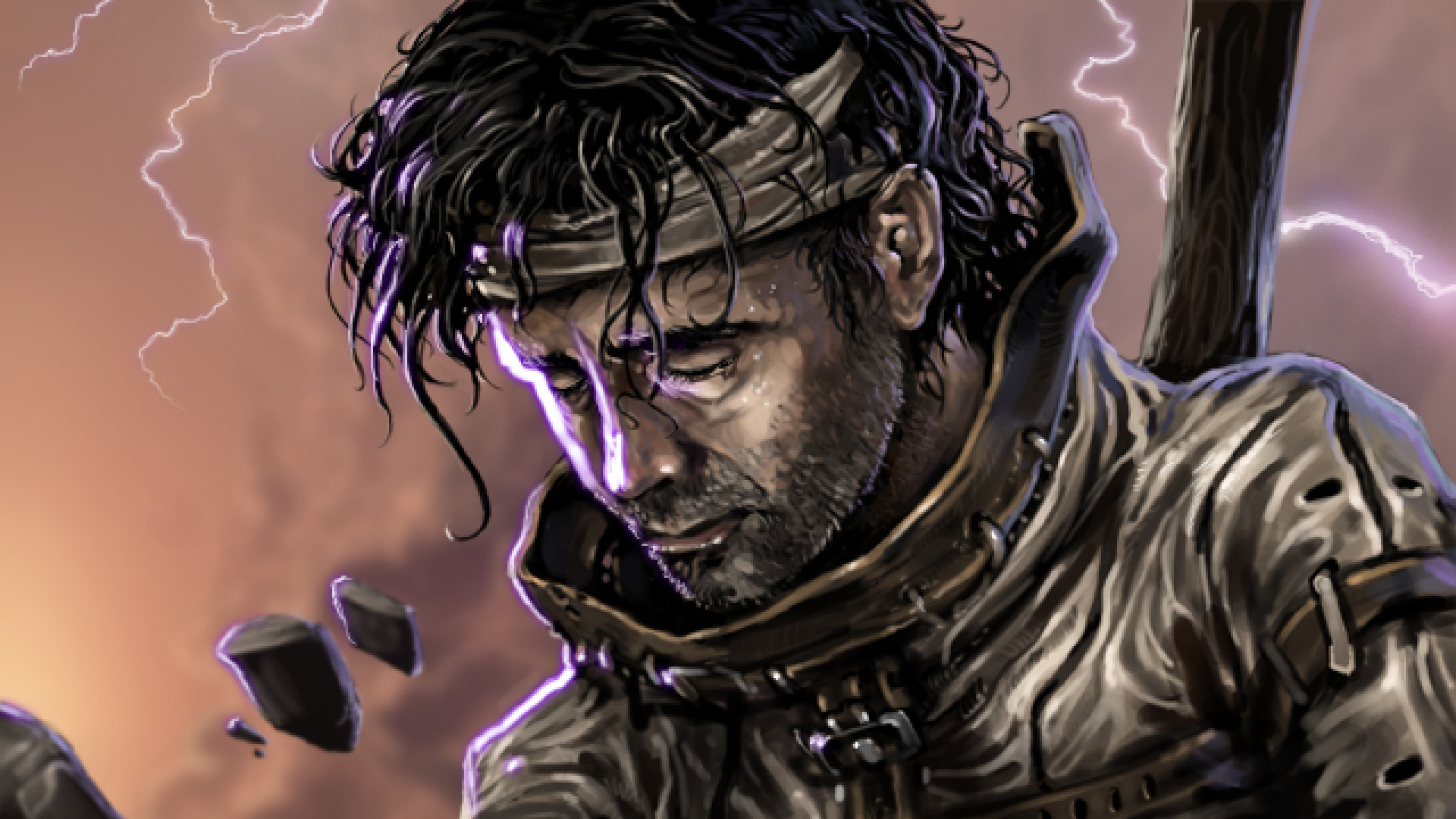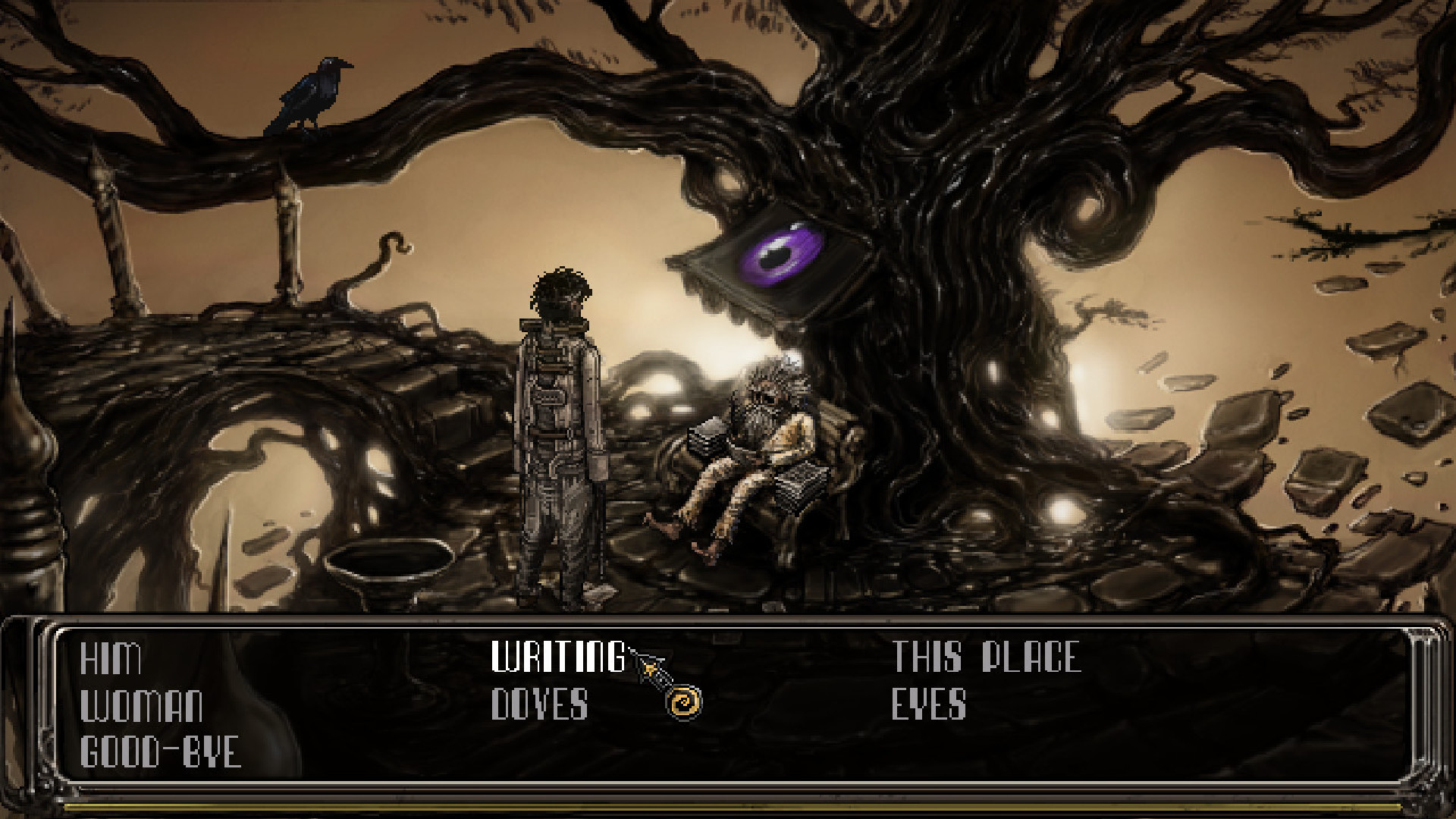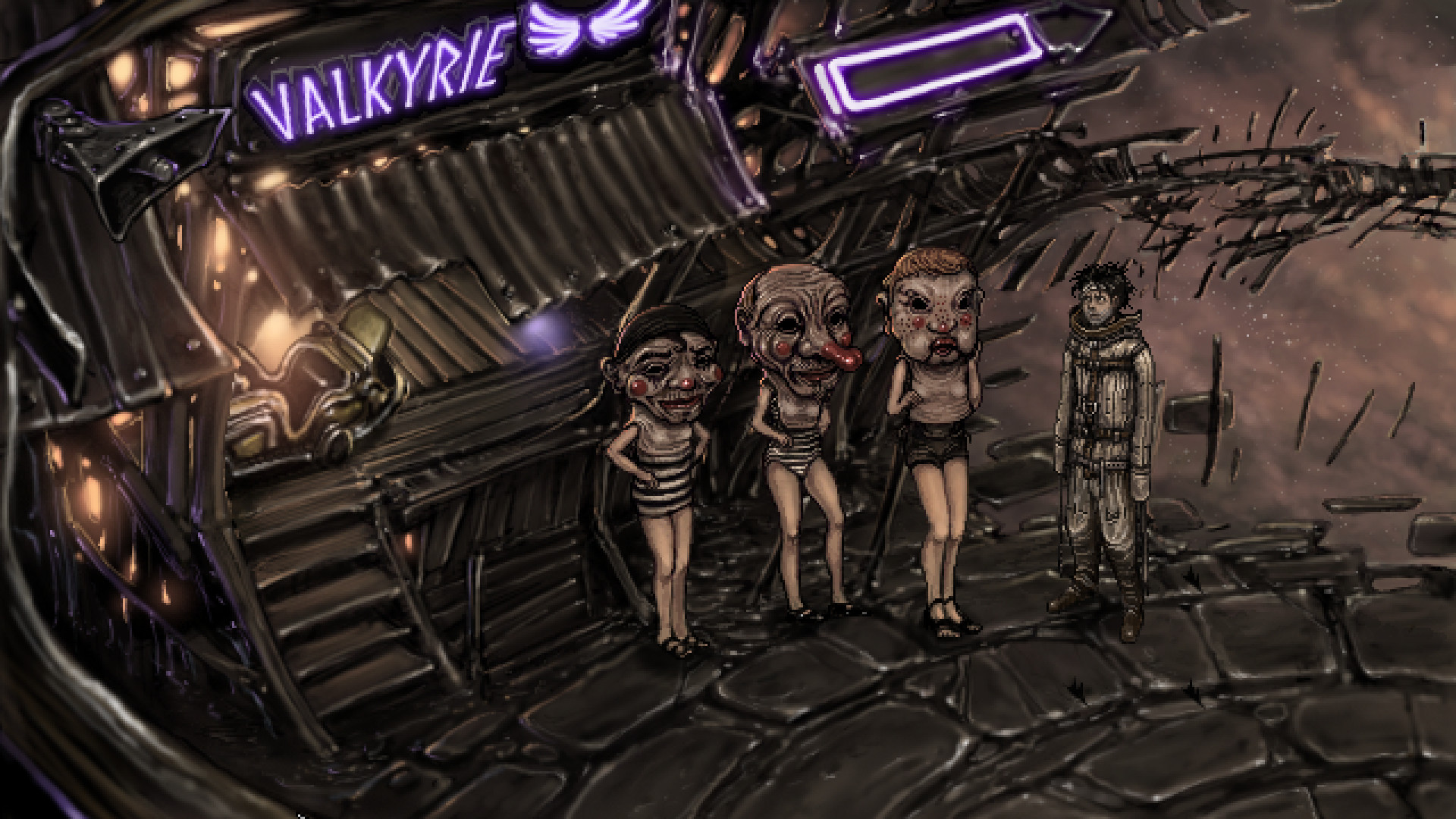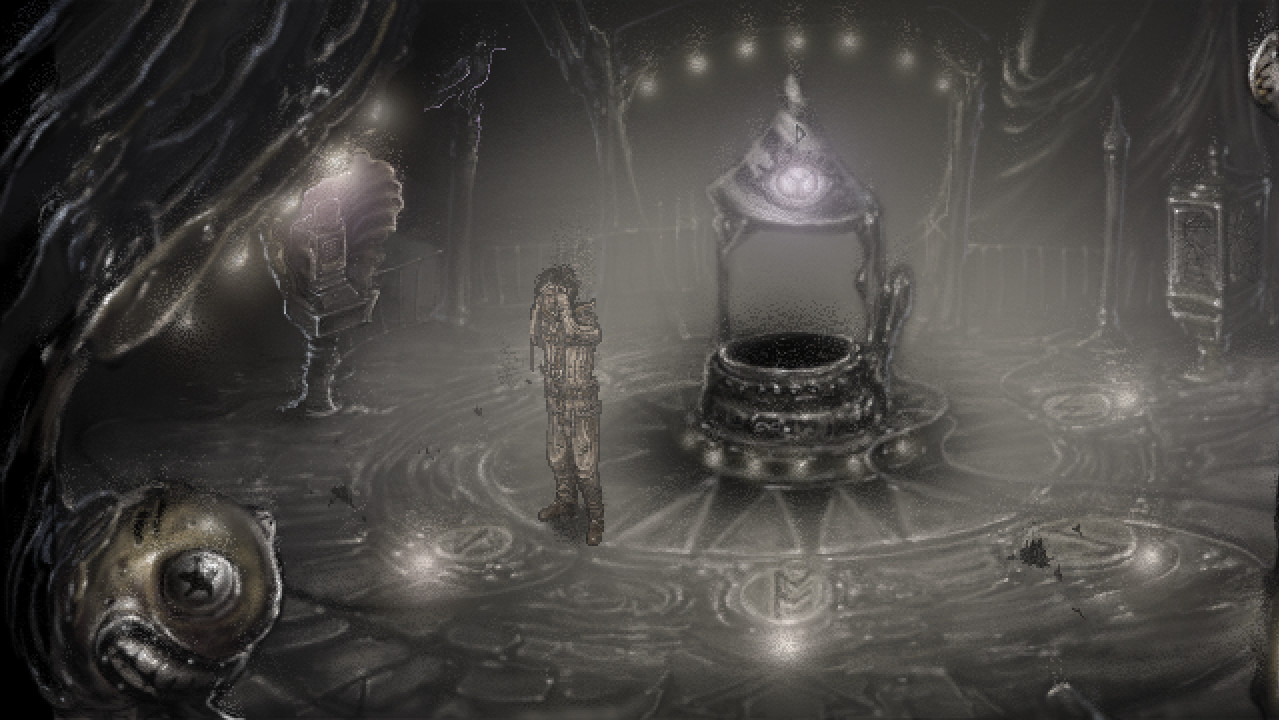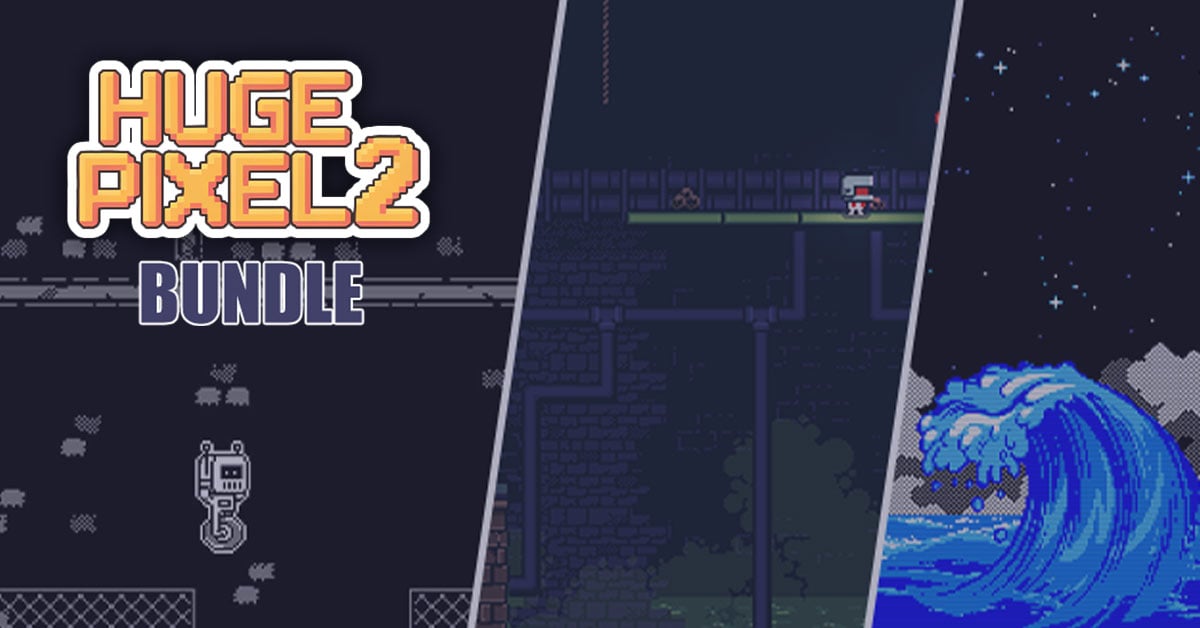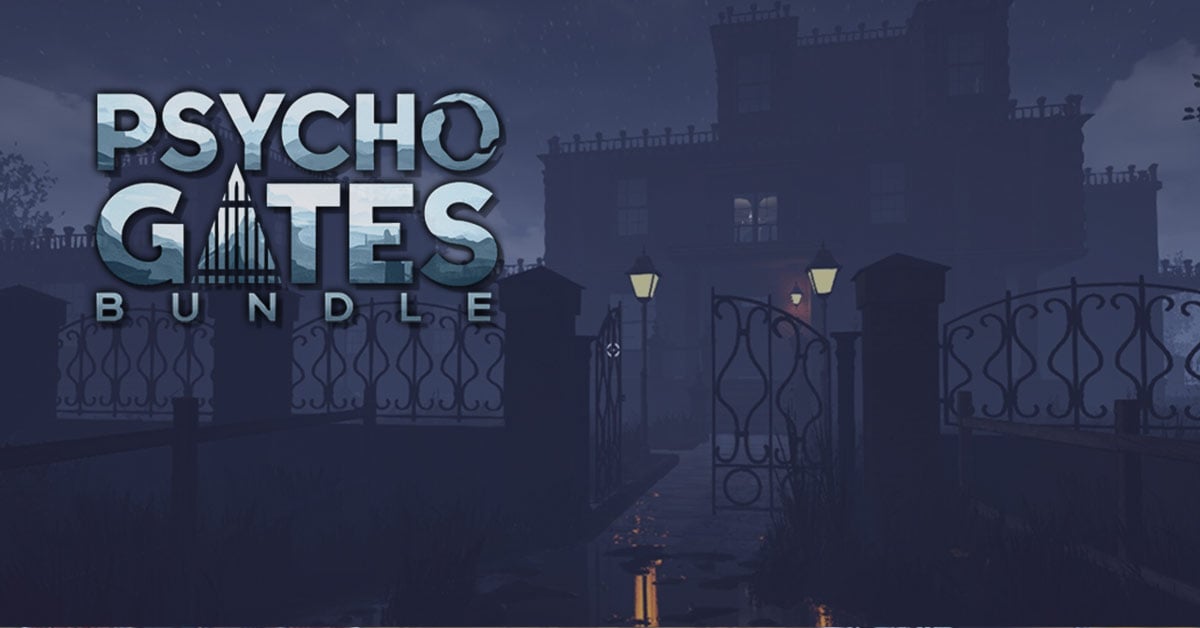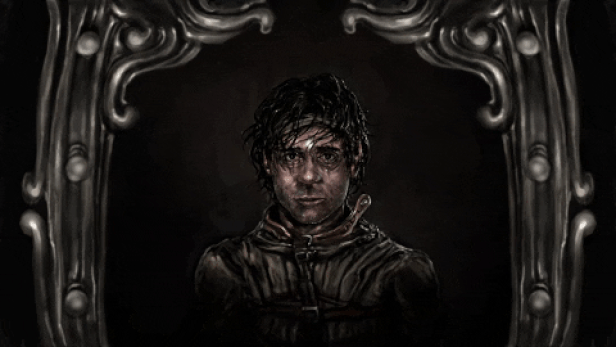
You awake in a nightmarish carnival and watch a golden-haired woman hurl herself down a bottomless well for your sake. You seek clues and help from jeering ravens, an eyeless scribe, a living furnace, a mismade mermaid, and many more who dwell within the park. All the while, a shadow shrieks from atop a towering roller-coaster, and you know that until you destroy this Dark Thing, the woman will keep jumping, falling, and dying, over and over again....

Strangeland is a classic point-and-click adventure that integrates a compelling narrative with engaging puzzles. For almost a decade, we've been working on a worthy successor to the fan-acclaimed Primordia, and we are proud, at long last, to share our second game.
Strangeland is a place like no other. Even in the real world, carnivals occupy a twilight territory between the fantastic and the mundane, the alien and the familiar. In their funhouse mirrors, their freaks, and their frauds, we see hideous and haunting reflections of ourselves, and we witness the wonder and horror of humanity in just a few frayed tents, peeling circus wagons, dingy booths, and run-down rides. Strangeland, of course, is most definitely not the real world. Indeed, unraveling the connections between this nightmare and the real world is the game's central mystery, and finding a way out is its central challenge.
As you explore Strangeland, you will need to gather otherworldly tools and win strange allies to overcome a daunting array of obstacles. Forge a blade from iron stolen from the jaws of a ravenous hound and hone it with wrath and grief; charm the eye out of a ten-legged teratoma; and ride a giant cicada to the edge of oblivion.... Amidst such madness, death itself has no grip on you, and you will wield that slippery immortality to gain an edge over your foes.
Navigating this domain of monsters and metaphors will require understanding its denizens and its enigmas. Unlike many adventure games that offer a linear experience and single-solution puzzles, Strangeland lets you pick your own way, your own approach, and your own meaning—one player might win a carnival game with sharpshooting, another by electrical engineering; one player might unravel a strange prophet's wordplay while another gathers visual clues scattered throughout the environment. Ultimately, Strangeland's story will be your story. You are not the audience; you are the player.
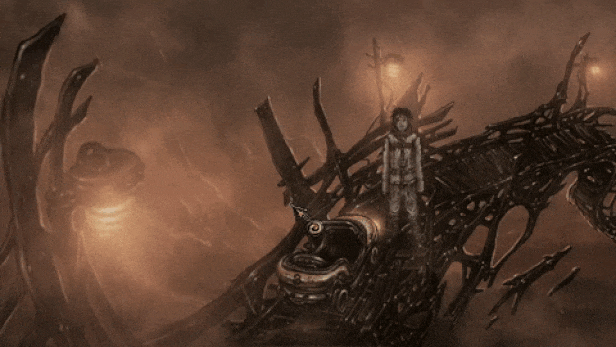

- Approximately five hours of gameplay, replayable thanks to different choices, different puzzle solutions, and different endings
- Breathtaking pixel art in twice Primordia's resolution (640x360—party like it's 1999!)
- Dozens of rooms to explore, with variant versions as the carnival grows ever more twisted
- An eccentric cast, including a sideshow freak, a telepathic starfish, an animatronic fortune-teller, and a trio of masqueraders
- Full, professional voice over and hours of original music
- A rich, thematic story about identity, loss, self-doubt, and redemption
- Integrated, in-character hint system (optional, of course)
- Hours of developer commentary and an "annotation mode" (providing on-screen explanations for the references woven throughout the game)
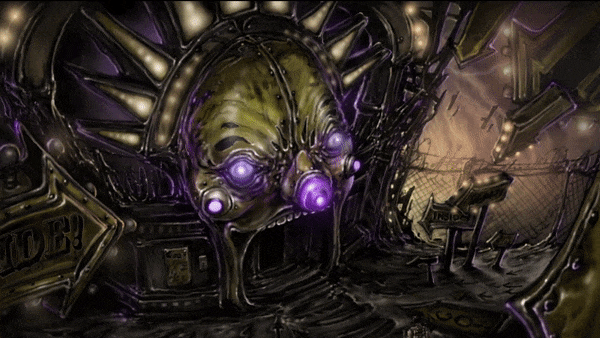

At Wormwood Studios, we make games out of love—love for the games we've spent our lifetimes playing, love for the games we ourselves create, and love for the players who have made all of those games possible. We know that players invest not just their money and time in the games they play, but also their hope and enthusiasm. And we want to make sure that players receive a rich return on that investment by creating games that provide not only a fun, challenging diversion for a few hours, but also lasting memories to keep for years.
We think the best way to achieve that with Strangeland is to adhere to the genius of the adventure genre: the marriage of challenging puzzles and thrilling exploration, on the one hand, with an engaging narrative, on the other. At the same time, we've tried to remove the punitive aspects of adventure games (deaths, dead ends, illogical puzzles, pixel hunting, backtracking, etc.). Within this framework, we add uncanny visuals, memorable characters, and thought-provoking themes. The result for Primordia was a game that has received thousands of positive player reviews, and we have refined our approach further with Strangeland. We hope it will not disappoint the players who have given us such great support and encouragement over the years! And we hope that it will find a place in the hearts of new players as well.
The right relationship between a developer and a game can be painful. However beautiful the vision a developer begins with, however ecstatic the momentum of its conception might be, the process of bringing it into some releasable state is one that entails hardening your heart and sharpening your critical eye. The developer must see what is wrong with the game and cut it away. Fault-finding is the ruin of any relationship, and so it goes with the relationship between a developer and a game. Ovid tells us that Pygmalion loved his sculpture; I doubt it, but even if he did, he brought her into being by setting a cutting edge to beautiful ivory, and the poem tells us that he began not with love but loathing. In the end, the game as released is the best you can make of it, and everywhere you look are the phantoms of the features you dreamed of but couldnt incorporate and the ghosts of the flaws you fought against for so long. With Strangeland, I am very proud of what we are about to releasemore proud and pleased than I was with Primordia at launchbut complicated is a generous word for the relationship.

The right relationship between a developer and a player, however, is sublime. Let me explain why. A game by its nature makes demands on players. I dont mean in terms of the difficulty of its obstacles (though, as mentioned in a prior post, I think it is important that an adventure game challenge a player with puzzles). I mean something more basic. A commercial release demands a players: (1) attention; (2) hope; (3) time; and (4) money. Which of these resources is most valuable depends on the player; which of these prices is steepest depends on the game. With Strangeland, we are asking that out of a sea of beautiful games full of novel features and clever mechanics, you pay attention to our retro adventure game. We are asking that, despite having been burned by games that have bored you, frustrated you, even disgusted you, you push past your reservations and look for something beautiful and engaging in Strangeland. We are asking you to spend several hours searching for that beauty and engagement. And we want you to pay us, to the tune of $15 (no doubt from time to time with various discounts) for this work.
That is quite a list of demands! Who would ever accede to them? And why would they accede to them given the complicated way in which the developers themselves view the game they developed?

One approach to answering these questions is a contemptuous one that arises when business predominates over the creative spirit. One can engage in marketing psychoanalysis and decide that a player can be parted from great quantities of attention, hope, time, and money by, say, such-and-such advertising hook to reel them in (appealing to the will to domination or lust or whatever) followed by a Skinner-box design, micro-transactions, and the like. This is a literally obscene way of viewing the player-developer relationshipone in which contempt and commercial interests override love and passion.
So let me offer another, more hopeful answer, born from having read literally thousands of player reviews (overwhelmingly positive but sometimes negative, sometimes very negative) for Primordia and other games Ive worked on. Players love games. They are passionate about games. That is so in substantial part because gaming has always been about community: communities among players, and communities between players, developers, and criticscategories that are extremely fluid. Players want to incorporate new games into those communities, and create new communities around those games.
Players love games so much that they are shockingly willing to forgive flaws, forget disappointments, and look with hope and generosity upon the very same product that developers have spent years looking at with a critical eye. Of course, players also love games so much that they will rail at developers for breaches of trust (real or merely perceived); and at its worst, this beautiful love of games deforms into intolerable abuse, exclusion, and ugliness. But, on balance, it is a passion that has created a gigantic medium; entire subcultures; and countless opportunity for countless developers to pursue their dreams knowing that there is someone (indeed, many someones) waiting hopefully at the end of the long development road.

So what does the developer owe to the players who offer their attention, hope, time, and money so that the developer can pursue his dream?
Fundamentally, the answer is respect and reciprocity. A developer should always strive to offer back more than what the player puts in. Fun, joy, memories, beauty, engagement there are many ways a game can repay a player, and its incumbent on us as developers to find those ways. For Wormwood Studios, the question is [u]never[/u] how do you get more from the player and always how do you give more to the player. Of course, there are limits to the time, energy, resources, and skill that we can put into our products; but we always strive to do the best we can by our players. Players will likely never have the better of the bargain because to make a game and have it enthusiastically played by someone is such an extraordinary gift. But the goal of reciprocity means acknowledging that gift and trying to repay it as best you can. With Strangeland, wherever we could add some extra touchan animation, an amusing interaction, an extra commentary track, another layer of polishweve tried to do so. And whenever a player asks us for technical support or a hint or for some trivia about the game, we try to respond as quickly and as helpfully as we can.
Respect and reciprocity also mean designing the games systems with the player in mind, while staying true to the essential vision of the game. I dont believe a game should pander to a player. But I do believe that a game should never exploit a player. With Strangeland, we have done our best to create game systems that minimize tedium like backtracking, repetition, and brute-force solutions, and maximize players ability to engage with the game meaningfully and easily. From the inventory to save systems to the layout of rooms to multiple puzzle solutions to an optional integrated hint system, weve tried to focus the game on the fun and challenge of puzzle-solving, exploration, and discovery, while eliminating frustrations and grind.

Next, respect and reciprocity mean acknowledging when you fall short as a developer. It was my view with Primordia, and it is my view with Strangeland, that a player disappointed by the game has been failed by the game and thus by the developer. We did not make Strangeland because someone asked us to make it. We made it for ourselves, and then asked you, the players, to play it. Having asked the players to trek to our game, we damned well better make it worth your while. For some players, unfortunately, it wont be. When that happens, the fault is ours: we persuaded someone to spend that attention, hope, time, and money on us, and it turned out to be a raw deal. So when a player is unsatisfied, the least thing owed is an apology. It is certainly not the players fault that he or she didnt like the game. Even if a developer thinks a player is playing a game the wrong way and is thus not getting it, that itself is a sign that the designer failed to reach the player. So, let us apologize in advance for the flaws we didnt spot or couldnt fix.
Finally, respect and reciprocity mean gratitude. There has been no greater joy for us as developers than to see Primordia not with our own eyesgrown bleary and jaded with fault-findingbut with your eyes, the eyes of hopeful, attentive, loving players who, irrationally and exuberantly, threw themselves into a post-apocalyptic wasteland devoid of life. Behind those eyes was the whole beautiful range of human backgrounds from all around the world and all walks of life, each player seeing with a unique and valuable perspective that somehow found something worthwhile in our project. You made a community around Primordia, and made us a part of it.
Now, after many, many years, we are two weeks away from being able to see Strangeland through your eyes. Whether or not you like what you see, we are grateful for you entering its nightmarish carnival and spending your precious time on our dream.
Fondly, respectfully,
Mark, Vic, and James

Minimum Setup
- OS: Ubuntu. Debian
- Processor: 2.7 GHz Dual Core (and above. can run on single core)Memory: 2 GB RAM
- Memory: 2 GB RAM
- Graphics: OpenGL. DirectX 5
- Storage: 2 GB available space
[ 6381 ]
[ 5869 ]
[ 750 ]
[ 1993 ]
[ 878 ]

